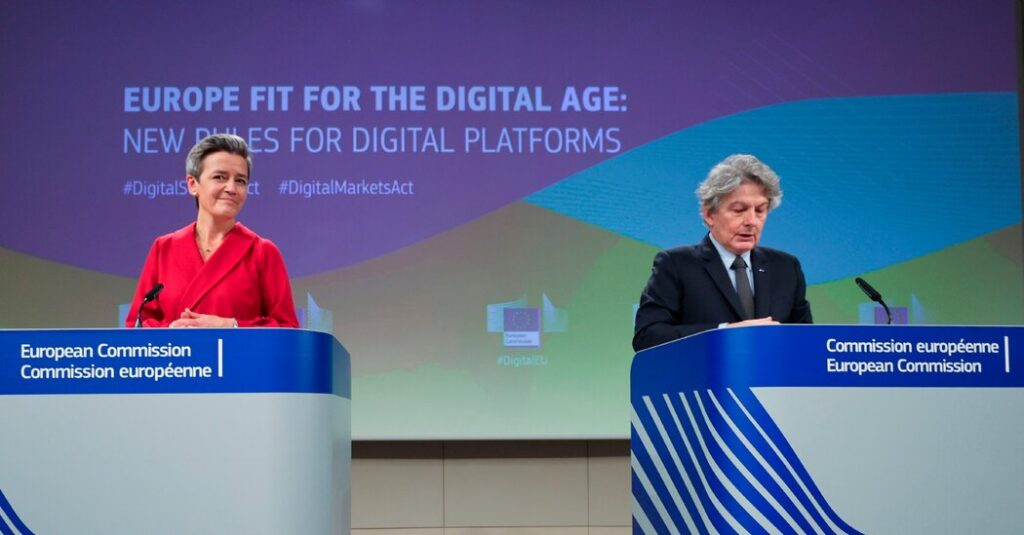The Transatlantic Tensions: Free Speech and Digital Regulations
Overview of Transatlantic Relations
The ongoing relationship between the United States and Europe has become increasingly strained due to various issues including tariffs, the conflict in Ukraine, and differing views on the very foundation of the European Union. A significant area of contention is the regulation of digital speech and content, which raises critical implications for how free expression is interpreted across the Atlantic.
The Digital Services Act and Its Implications
The European Union (E.U.) is investigating U.S. technology firms under the auspices of the Digital Services Act (DSA). This legislation aims to curb the dissemination of illegal content and misinformation on digital platforms. In the summer of 2024, regulators are likely to issue substantial fines and demand operational changes from Elon Musk’s platform, X (formerly Twitter), for alleged violations of this law.
U.S. Response to European Regulations
The administration of President Trump views the DSA as a challenge to what it defines as free speech, often arguing that it inhibits conservative voices while allowing others to flourish. His administration has raised concerns that European regulations threaten the principles of free speech that they believe America upholds.
Vice President JD Vance criticized European nations, labeling their regulations as instances of “digital censorship,” which he claims disproportionately affect far-right commentators. This perspective indicates a growing divide over how free expression should be maintained in the digital age.
Historical Context and Current Dynamics
This discord is not new; historical tensions between U.S. and European approaches to free speech have long existed. Europe generally enforces stricter speech regulations, including laws against hate speech and certain extremist ideologies. In contrast, the U.S. prioritizes personal expression rights over regulatory measures unless there’s an imminent threat to public safety.
The Role of Major Tech Companies
Notably, the situation is complicated by the involvement of major tech companies in this debate. The E.U. is also scrutinizing companies like Meta, which suspended its fact-checking processes in the U.S., arguing that the E.U.’s regulatory framework amounts to censorship. Mark Zuckerberg has publicly condemned these regulations, suggesting that the U.S. should protect its tech giants against such international challenges.
Free Speech and Digital Content Oversight
While the Digital Services Act requires tech companies to implement procedural safeguards to manage illegal content, it doesn’t explicitly ban any type of speech. Margrethe Vestager, a former E.U. executive, noted that the act emphasizes transparency in content moderation to ensure adherence to national and international laws.
Christel Schaldemose, a key figure in the law’s implementation, stated, “You don’t have a right to be amplified,” asserting that the legislation maintains the balance of free speech without granting platforms unchecked power.
Looking Forward: Implications for Digital Governance
As E.U. regulators advance their crackdown on platforms like X, the geopolitical ramifications could escalate, particularly given the close ties between these tech companies and American political figures. Analysts express concern that if E.U. penalties target notable figures and businesses linked to the Trump administration, it could exacerbate tensions further.
European officials remain steadfast, maintaining that their regulations are not an affront to free speech but are necessary to uphold democratic values by ensuring that harmful content does not proliferate online. The upcoming months are set to be crucial in determining how these regulatory frameworks evolve amid this transatlantic dispute.


